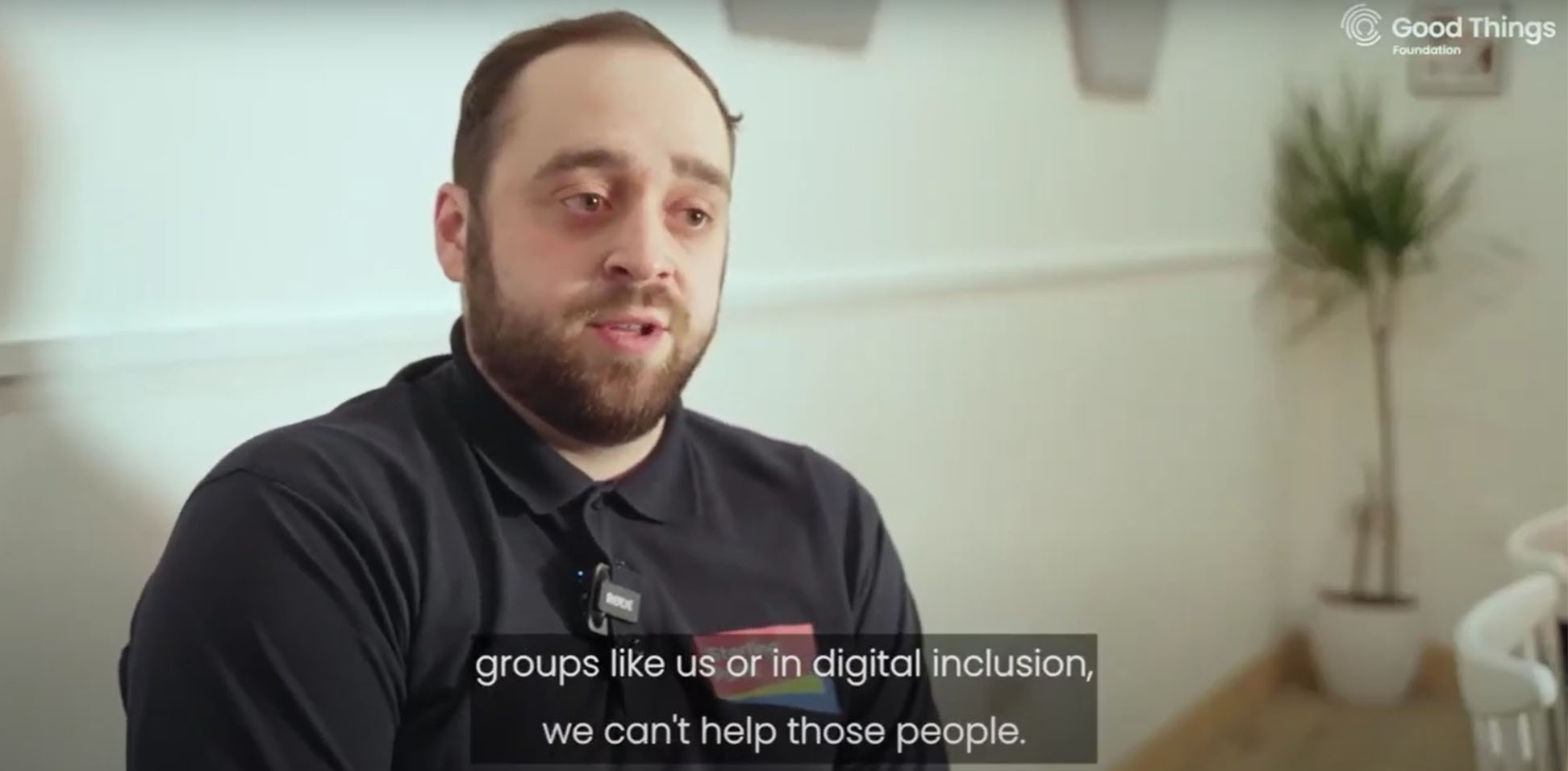A visit from Secretary of State for DSIT Peter Kyle
Our Group CEO Helen comments on Labour's pledge to digital inclusion and reflects on Peter Kyle's visit to a Digital Inclusion Hub.
As you probably already know, I won’t pass up the opportunity to tell anyone who might help, about how digital exclusion is crippling millions of people in the UK today and how I believe that it’s not OK to leave millions of people behind. It’s not good for people, it’s not good for society, and it’s, frankly, not good for our economy either.
Last week, we had the pleasure of hosting Peter Kyle, the Shadow Secretary of State for Digital, Science, Innovation, and Technology (DSIT), at ClearCommunityWeb – a remarkable Digital Inclusion Hub in Croydon.
His visit followed his inspiring speech at London Tech Week, where he articulated the UK Labour Party’s commitment to enhancing digital skills and confidence across the nation. Kyle’s speech highlighted a significant pledge: a Labour Government would collaborate with charities like Good Things Foundation to repurpose old Government tech for digital inclusion, a gesture that received an enthusiastic response.
At Good Things Foundation, we were delighted to receive a namecheck from a major political party – one that acknowledges our efforts in tackling digital exclusion. Peter Kyle’s visit provided a valuable opportunity to showcase the tangible impact of vital digital inclusion services, particularly those offered at a hyperlocal level. Our work in communities like Croydon with our partners in the National Digital Inclusion Network exemplifies the profound difference that digital access and skills support can make in people’s lives.
Transforming lives through digital
During his visit to ClearCommunityWeb, Peter Kyle talked with the staff, volunteers, and the people they support. I was delighted to be part of this visit and to see Peter Kyle’s genuine interest and understanding in the multifaceted challenges people face from digital exclusion and to hear about what they’re missing out.
He spoke with several people who have directly benefited from the free support provided, listening to their stories, their hopes and their fears, and learning about the transformative impact of gaining digital skills, as well as receiving free mobile connectivity data and devices. Rebecca, a former beneficiary and now volunteer at the digital inclusion hub described her (and her mother’s) journey as being “from digitally frightened, to digitally enlightened.”
One memorable moment was when Peter spoke with an elderly resident who had recently learned to navigate the internet. He shared how being digitally literate had enhanced his day-to-day life by order shopping online. It was clear that these personal stories resonated with Peter and reinforced the necessity of our work.
Real cross-sector collaboration
During the visit Peter also chatted with some of our Strategic Partners from the world of business – Vodafone, Virgin Media O2, and Accenture. He gave a small speech where he highlighted that fixing the digital divide would be achieved from the collaborative efforts of partners in businesses, in national and local charities, and in Government too.
Our Strategic Partners emphasised how working with Good Things is good for their businesses as well as good for people who are left behind. They made the point that for every £1 invested in digital inclusion the nation gets almost £10 back.
Silver linings
It’s disappointing to see none of the major UK political parties mention digital inclusion in their manifestos, in spite of the urgency of the issue. (Although I am holding onto that commitment to basic digital skills, confidence, and the re-use of Government devices in Peter Kyle’s speech.)
Peter’s engagement during the visit left a lasting impression on me. I truly believe his experience will further solidify his understanding of the importance of fixing the digital divide. As we approach the UK’s General Election, it is our hope that all political parties recognise and prioritise this critical issue.
At Good Things Foundation, we remain committed to advocating for digital inclusion and supporting those who are most at risk of being left behind. We look forward to continued collaboration with political leaders from across the spectrum to ensure that everyone, regardless of age, background, or circumstance, has the opportunity to participate fully in our increasingly digital society.
It’s not OK to leave people behind, but it’s also not OK to miss out from £13.7 billion benefit to the economy. This is an effort of people and organisations, big and small from across sectors and across geographies. Whoever ends up in Number 10 on July 5th, I hope they’re listening.
